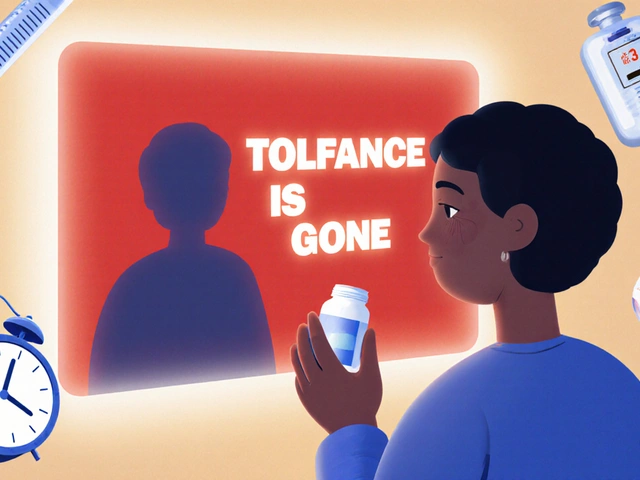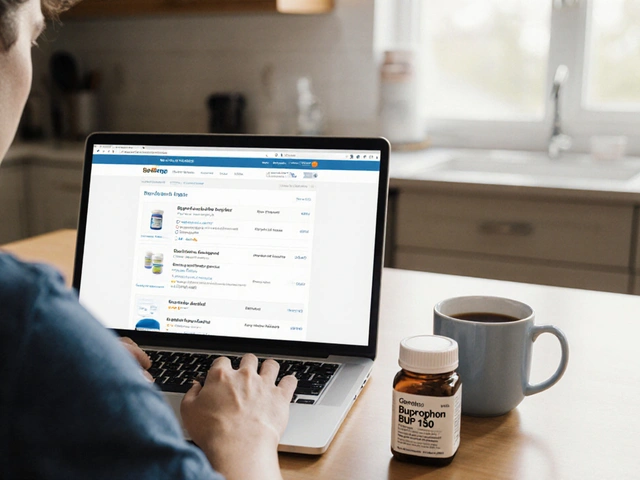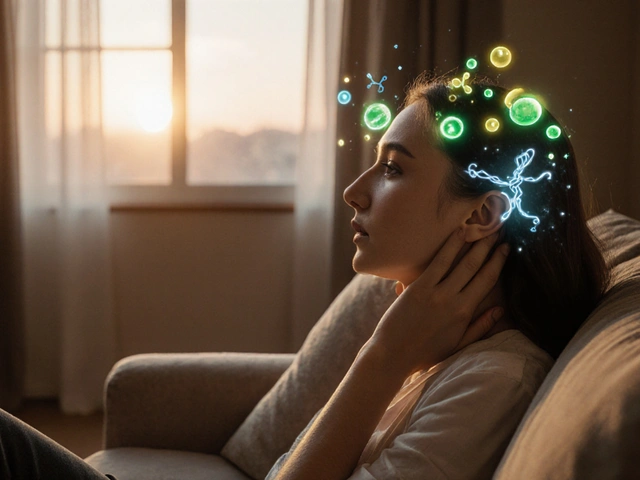Ever notice how endometriosis makes you question your own body—like it's working against you? You're not alone. Fatigue, pain, bloating, and changes from surgery or medication can make you self-conscious about how you look and feel. Surveys from 2024 found over 60% of people with endo say their symptoms affect their confidence about their body daily.
It’s not just about the visible stuff. That constant discomfort can get in your head, making you worry about intimacy, clothes that fit differently, or even showing up to social events. If you’ve ever canceled plans because you weren’t feeling your best or hid your pain to avoid judgment, that’s endometriosis messing with your self-image.
Here’s some real talk: it's not vain to care about how you look or feel. Body image is actually a huge part of mental health, and endo can shake it right to the core. Little things—like finding clothes that hide bloating or dealing with scars—pile up to take a toll. But there are legit ways to push back, and it's possible to get some control back, even when your symptoms don’t cooperate.
- Body Image Struggles: The Hidden Toll of Endometriosis
- How Endometriosis Chips Away at Self-Esteem
- Real Talk: Why It Hurts More Than Just Physically
- Practical Ways to Rebuild Confidence
Body Image Struggles: The Hidden Toll of Endometriosis
When you’re dealing with endometriosis, looking in the mirror can turn into a battle. That never-ending bloating—people call it “endo belly”—shows up out of nowhere and can make you look way more pregnant than you actually are. It’s so common that in a 2023 survey of 1,500 women with endometriosis, almost 70% said bloating was their top body frustration. Forget wearing jeans or anything snug on those days.
Surgeries to manage endometriosis can leave scars that change how you see your stomach or lower belly. Some folks also gain or lose weight from hormone treatments, and that comes with its own wave of emotions. It’s not just about the way pants fit; it’s also about worrying if other people notice.
The impact on body image shows up in lots of everyday moments:
- You might pass on swimming because you don’t want to show scars or a bloated belly.
- Photo days can trigger anxiety—will today’s pain show on your face?
- Trying on clothes at a store feels like a battlezone if nothing fits like it used to.
One study from 2022 pointed out that women with endometriosis are almost twice as likely to experience negative body image compared to those without chronic pain conditions. It’s not all just mental: pain or fatigue sometimes forces you to skip workouts or cooking healthy foods, leading to even less energy and more frustration about how you look and feel.
| Body Image Impact (2023 Data) | Percentage (%) |
|---|---|
| Significant Bloating | 70 |
| Surgery Scars Visibility Concerns | 42 |
| Body Confidence Drop | 59 |
What helps? Small wins. Some folks find comfort in loose clothes or swapping out waistbands for stretchier fabrics. Others join private support groups online for tips and a place to vent. Don't underestimate asking your doctor for advice on side effects that really mess with your comfort. Taking back even tiny bits of control adds up when you’re living with something as relentless as endometriosis.
How Endometriosis Chips Away at Self-Esteem
Endometriosis doesn’t just attack your body; it can seriously bruise your self-esteem. Chronic pain makes it tough to trust your own body—like, am I ever going to feel normal again? That doubt and frustration can leak into how you see yourself, both in the mirror and inside your head.
Living with unpredictable pain or intense flare-ups messes with your daily routine. If you have to call in sick a lot or pass on stuff you usually love, you can start feeling unreliable or even guilty. This hits your self-esteem hard—nobody wants to feel like they’re letting others (or themselves) down.
Toss in the impact on work or school. Studies from 2023 found that people with endometriosis miss twice as many days because of symptoms compared to others without the condition. That’s not just stats—it’s missed opportunities, promotions, and social hangouts. The pressure to hide your symptoms (to seem 'normal') ramps up the stress.
| Challenge | Percent Affected |
|---|---|
| Missed work or school | 75% |
| Felt embarrassed by symptoms (like bloating) | 58% |
| Avoided social situations | 63% |
And don’t even get started on relationships. Sex might be painful, or you might feel 'less attractive' because of changing hormones, scars, or weight shifts. This can make you worry about being rejected or misunderstood, putting another ding in your confidence.
It’s not dramatic to say self-esteem takes a daily hit when you’re always managing something out of your control. But just naming the ways endo chips away at confidence can be the first step to pushing back against it. You’re definitely not alone in this.

Real Talk: Why It Hurts More Than Just Physically
When people talk about endometriosis, they usually start with symptoms you can touch or see—pain, bloating, crazy periods. But the mental side hits just as hard, if not harder. That non-stop belly or pelvic pain? It messes with sleep, ruins your focus, and eats into your energy to do literally anything fun or rewarding. Feeling stuck in a body you can't trust chips away at self-worth faster than you’d think.
Here's something a lot of folks miss: chronic pain isn’t just stressful—it actually rewires how your brain and emotions work. Stress hormones skyrocket with each flare-up, and after a while, your mood tanks. A real-world survey from 2023 showed people with endometriosis were over twice as likely to deal with depression or anxiety compared to others in their age group.
| Challenge | % Reporting Impact |
|---|---|
| Low self-esteem | 58% |
| Depression symptoms | 63% |
| High anxiety | 71% |
| Intimacy issues | 54% |
It gets personal fast—relationships, work, sex, everyday routines. When your body feels out of control, confidence takes hit after hit. Some share stories of partners not getting why they're tired or avoiding closeness. It’s not rare to feel guilty or embarrassed about things you can’t help, like missing deadlines or skipping events because of a bad day.
The social piece stings, too. It can be hard to explain endometriosis—most people aren’t even sure what it is. The "you don't look sick" comments get old real quick, making some feel unseen or even more isolated. Feeling like you can’t join in or have to hide your symptoms can make anyone second-guess themselves.
So when you’re feeling low, it’s not just “all in your head.” The mind and body are in this together, and when endometriosis is calling the shots, you need real support—not just a pat on the back and “hang in there.” Reaching out to people who get it or even using a journal to track what’s going on in your mind can make things a little easier, even when the pain itself hasn’t let up.
Practical Ways to Rebuild Confidence
If endometriosis has you doubting your own skin, there are things you can do right now to feel a bit more like yourself. Let’s keep it real and useful—here’s what helps people get their groove back, even when they can’t change their symptoms overnight.
- Connect With Others: You’re not the only one dealing with the effects of endometriosis on body image and self-esteem. Online forums, local support groups, or even a buddy going through the same thing can help you realize you’re not alone. One study in the journal "Women's Health" (2023) found that folks involved in regular support groups reported a 30% boost in self-confidence compared to those going it alone.
- Talk It Out With a Pro: Sometimes talking to a therapist who knows about chronic illness can give you tools to handle body changes and self-doubt. Cognitive-behavioral therapy and mindfulness tricks actually work for many.
- Dress for Your Body Now, Not the Body You Used to Have: Styles that help you feel good (even on bloated days) matter. Elastic waists, flowy tops, and comfy fabrics aren’t giving up—they’re fighting back. You’d be surprised how much it matters to have at least one outfit you don’t dread putting on.
- Take Small Steps: Setting tiny, realistic goals—like getting out for a walk, calling a friend, or just remembering to eat a good breakfast—can slowly chip away at the big, negative feelings. Every win counts.
- Change What You Can, Accept What You Can't: This isn’t about being tough all the time. Some days are rough, and that’s real. Pick something you can control, even if it’s just your playlist or your tea. Lean into self-care, not because it solves everything, but because you deserve it.
| Strategy | % Recommending It* |
|---|---|
| Support Groups | 78% |
| Therapy/Mental Health Help | 65% |
| Relaxed Clothing Choices | 71% |
| Self-Care Practices | 88% |
*Based on a 2024 Endometriosis Association poll of 220 participants
Remember, self-esteem and confidence aren’t built in a day, but these steps—backed by real people’s experiences—do add up. Don’t shrug off the power of reaching out or just being kinder to yourself, even when your symptoms refuse to play nice.







Comments(11)